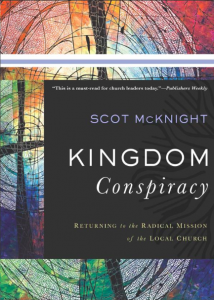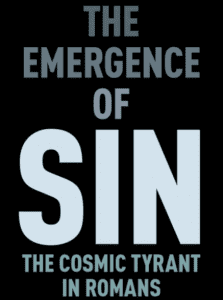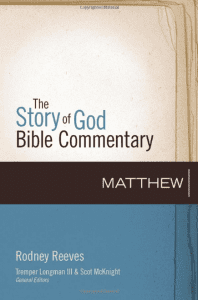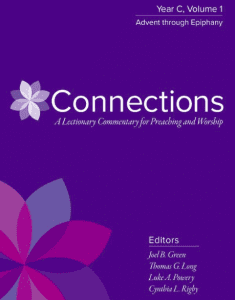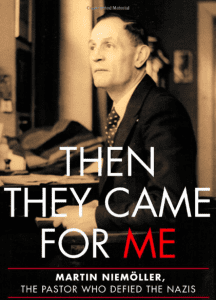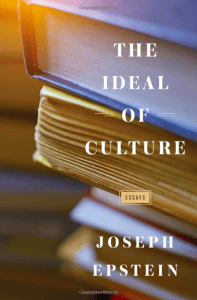 Spring Break is about over and time to enter into the Spring schedule.
Spring Break is about over and time to enter into the Spring schedule.
It was so good to see History Channel’s kick-off episodes Monday night — check in again next Monday for episodes 3 and 4.
An interview I did. A second one.
Kris and I both appreciate stories like this:
FOXBOROUGH, Mass. — Greg Schiano is stepping down from his position on the New England Patriots‘ coaching staff, citing a “need to spend more time on my faith and family.”
Schiano, whose hire had never been officially announced by the club, announced his decision Thursday in a joint statement with coach Bill Belichick.
“This is not the result of any one event, but rather a realization that I need to spend more time on my faith and family,” Schiano said. “I don’t want to look back years from now and wish I had done things differently. Therefore, I am taking time away from the game to recalibrate my priorities.”
Schiano was hired by the Patriots less than two months ago, although the team never specified what his role would be. It was widely assumed he would play a lead role on defense as the club replaced playcaller Brian Flores, who was hired as Miami Dolphins head coach after the season.
For a long and articulate strategy for the conservatives/traditionalists in the UMC, see this by William Abraham.
A wonderful brief interview with Jimmy Dunn, two questions from which are here:
2.What do you hope readers take away from reading Jesus according to the New Testament?
Since Bible knowledge does not seem to be particularly high here on the English south coast in a tradition which focuses primarily on liturgy, I hope to increase knowledge of Jesus as he has been remembered and portrayed in the New Testament.
In a recent meeting with a church men’s group I was fascinated, and a little dismayed, at some of the questions they asked. For example, I could answer simply by referring the questioner to the forewords in Luke’s Gospel and Acts—passages which they had heard read on numerous occasions but evidently had never taken in.
I hope readers will find the richness and diversity of the ways Jesus is portrayed in the New Testament both fascinating and enriching for their discipleship and their worship.
3.Which book has done the most to make you who you are today?
That’s a tough one, since I have been influenced by many books, such as Calvin’s Institutes, and my doctoral supervisor Charlie Moule’s The Birth of the New Testament.
But I doubt if I could commend (or blame) any one book for who I am today and would rather attribute any praise (or whatever) to the Holy Spirit.
Trendcendence, a very insightful piece:
Yet we’re in a place now, thanks to our technology, in which we can break the surly bonds of our own personal immanence through the process of trending.
Trending ushers in a kind of transcendence that I call “trendcendence” – the state of being in which you move beyond the atomised individual you surely are, to a state of communal consciousness that gives you both god-like quality in terms of reach and longevity.
Case in point: The Christchurch killer and Egg-Boy.
Two more polar opposite actions you could not envisage, yet actions that deliver the same result in terms of their reach. The first action; a cold, heartless killer slaughtering people in a place of worship. The second – and resultant action/reaction – a young man smashing an egg onto the head of a hard right politician conducting a media interview in light of that first action.
One, a murderous action that sent shockwaves around the West, particularly here in the Southern Hemisphere. The other, a fairly innocuous and cheeky action that drew praise for its bravery, and scorn for its stupidity, in equal measure.
Yet both actions linked by this common desire for trendcendence. Both self-consciously recorded by their perpetrators in the very act of carrying them out. And all for audiences that they know either exist, or will exist upon the broadcast of that material….
No action is an action any longer if it is not seen to be an action. Unless it trends. And trending is a tremulous, jittery creature, hard to raise, and quick to fall. There’s a window, and both killer and Egg-Boy took the chance and went through that window to global super-stardom.
As ISIS showed us so terribly in recent years, it’s not the slaughter of innocents that is the intention, but rather that the rest of us see the slaughter of those innocents. Sure it’s a lonely beach, with kneeling prisoners awaiting their fate – but unless it trends those murderers have not completed the job….
Trendcendence offers a hand up to the powerless and for a while, just a brief while, tells them that they are powerful. Powerful enough to scare, terrify, amuse. To whatever. It’s the result that, in the end, matters, not the process.
Trendcendence is eternity to the ephemeral; our culture’s refusal to ever get used to the dark, snake-scaled idea that Someone is holding out on us.
To refuse to believe that we don’t matter in the scheme of it all. To transcend whatever surly analogue bonds would hold us, and snarl or smile our digital response to an immanent world, and for one brief moment, to fly.
How odd to read this (critical) review of Razib Khan of David Sloan Wilson’s new book when I’m reading and blogging through another book on the rise of “scientific morality”:
In This View of Life: Completing the Darwinian Revolution, evolutionary biologist David Sloan Wilson continues the project of scientific imperialism that has defined much of the latter part of his career. This View of Life takes as given that humans are shaped by our evolutionary past, and proceeds to show how general principles derived from the discipline can be applied to policy decisions and social problems, guiding our species-wide goals to further our flourishing. Wilson aims to break evolution out of its biological box, offering it as a universal framework for understanding and shaping human phenomena.
This is an ambitious program. But first one has to address the historical elephant in the room: the misapplication of evolutionary principles. The prosecution argues that evolution stands of accused of aiding and abetting the abominations that culminated in Nazi Germany. After the defeat of Hitler’s regime, evolutionary theory retreated into the redoubt of biology, concerning itself with natural history, laboratory experiments, and abstruse mathematical models. And there it should stay, argue its critics, lest we repeat the mistakes of the past.
David Sloan Wilson rejects this argument in totality. He notes that the opprobrium hurled at evolution’s application to social problems draws from Richard Hofstadter’s Social Darwinism in American Thought. Hofstadter was a man of left-wing commitments writing in 1944, as the war against Hitler’s regime was still a live concern. His was not a dispassionate scholarly analysis. He aimed to produce something which could be deployed in the fight against “racism, nationalism, or competitive strife.”
This View of Life highlights how men as diverse as Darwin, Herbert Spencer, Francis Galton, and Thomas Malthus were not united in their views, nor were they the cruel anti-humanitarians that their detractors portray them as (Hitler’s own views were scientifically inchoate at best, and ignorant at worst). Wilson’s arguments are familiar to libertarians in particular, many of whom have long argued that Hofstadter misrepresented classical liberals.
The argument for the defense that one encounters in This View of Life may not entirely convince, at least in the chapter-length treatment Wilson provides. The great evolutionary geneticist R. A. Fisher’s central work, Genetical Theory of Natural Selection, contains a long exposition of eugenicist thought as applied to humanity. To not put too fine a point on this, contemporary readers invariably find this section quite offensive. And yet Fisher himself was a complicated figure, a patriotic British Tory conservative and Anglican Christian. The past was truly a different age. …
Most evolutionary biologists would no doubt feel The Phenomenon of Man is a bizarre work. Richard Dawkins has praised sharp critiques of The Phenomenon of Man. In his scientific work Dawkins has suggested that humanity is good not in spite of its nature, but because of it. Similarly, many scientists will look askance at the grand claims Wilson promotes in This View of Life, as he mixes “is” and “ought,” jumping from a positive description of reality to normative prescriptions for human happiness and well-being.
In contrast, religious conservatives may see Wilson’s visions as materialistic and hubristic. Its ultimate evolutionary basis, and nearly messianic aims, ensure that This View of Life will alarm many traditionalists.
The fact is, one can argue that Wilson’s This View of Life is all of these things, and that the author believes in the importance of his vision to such an extent that he is not particularly concerned with causing alarm. Wilson begins the book as an evolutionary biologist, describing the facts as they are. He ends it like de Chardin, an evolutionary priest, preaching to the unconverted the good news at hand.
John Fea is right here to wonder about access.
Didn’t expect this from First Things (but maybe I don’t read it carefully enough):
Among America’s culture wars—from guns to gay marriage, drug legalization to penal reform—no battle is more emotionally wrenching than the decades-long struggle over abortion. And none is more bitterly polarized: As pro-choice states like Virginia and New York are enacting laws that allow abortion up to the moment of birth, pro-life states are advancing legislation that will ban abortion as soon as a fetal heartbeat is detected.
Where might pro-life and pro-choice Americans find common ground? Might it not be possible to work together to reduce the number of unwanted abortions—by making it financially feasible for more women to choose life? America needs a generous pro-natal policy initiative similar to those of France, Germany, and the Nordic nations—one including federal funding for housing subsidies, day care, and medical coverage for willing mothers and their children, based on need. We might call this hypothetical legislation The Woman’s Right to Choose Act, a law that would provide comprehensive, means-tested, public aid—pre-natal care and counseling, post-natal care, and full child support for newborns—to all pregnant American women and their families.
The Woman’s Right to Choose Act could draw on policies suggested by both Democrats and Republicans, such as Senator Elizabeth Warren’s recent national child care proposal and the family and child tax credits advanced by Senators Mike Lee and Marco Rubio. Its prime beneficiaries would be women who actually want to bring children into the world, but fear that they cannot afford to, and so “choose” abortion under duress. This act would embody a “preferential option for the poor”—whose rates of abortion, particularly among minority women, are far higher than among affluent whites. And by using federal funds, it would offer more resources to all American women than even the most well-meaning, well-funded private charities could ever hope to deploy.
Such a robust national program would be costly. Some estimates of Warren’s child support proposal run upward of $70 billion a year. But congressional budgetary data show that we expend $127 billion a year in tax breaks to recipients of stock dividends and capital gains—the majority of that going to the wealthiest 5 percent of Americans. Taxing that capital income at the same rates as wages would more than pay for a robust Choose Act budget. It’s a question of priorities: money or lives?
There is a solid case to be made for pro-natal policies in America on purely social and economic grounds.
Just in case you’re interested in lounging around for two months:
Slobs of the world, here’s a job for you.
NASA and two other space agencies are asking for 24 volunteers to lie in bed for two months as part of a study. The pay? About $19,000.
“We are looking for test persons to take part in a bed rest study from September to December 2019 in Cologne (Germany) and spend 60 days lying down,” according to a statement from the German Aerospace Agency, NASA and the European Space Agency.
The point of the study is to “research how the body changes in weightlessness. Bed rest simulates this condition,” the statement said. Based on the study results, scientists will develop techniques to reduce the negative effects of weightlessness on astronauts.
During the two months, the volunteers will live in a single room, but will be divided into groups. One group will be rotated around in a centrifuge, similar to an artificial gravity chamber, which will force blood back into their extremities, ABC News reported.
Anonymous, to protect his/her professorship:
If you think corruption in elite US college admissions is bad, what happens once those students are in the classroom is even worse.
I know, because I teach at an elite American university – one of the oldest and best-known, which rejects about 90% of applicants each year for the small number of places it can offer to undergraduates.
In this setting, where teaching quality is at a premium and students expect faculty to give them extensive personal attention, the presence of unqualified students admitted through corrupt practices is an unmitigated disaster for education and research. While such students have long been present in the form of legacy admits, top sports recruits and the kids of multimillion-dollar donors, the latest scandal represents a new tier of Americans elbowing their way into elite universities: unqualified students from families too poor to fund new buildings, but rich enough to pay six-figure bribes to coaches and admissions advisers. This increase in the proportion of students who can’t do the work that elite universities expect of them has – at least to me and my colleagues – begun to create a palpable strain on the system, threatening the quality of education and research we are expected to deliver. …
Even for tenured professors, whose jobs are supposedly secure, becoming known as someone who won’t “play ball” by giving the sports star or the legacy an easy pass can mean exclusion from important opportunities and sources of support. So we suck it up as we recap our lectures for students who couldn’t attend due to golf team practice, or teach them skills most Americans learn in high school, or create extra credit assignments to bring up their marks.
This kind of thing has easily added 10-12 hours a week to my workload, and I know I’m not alone in that respect. As one of my colleagues put it, the unskilled and entitled students will “eat you alive”. Over the past decades as an instructor, I have seen my teaching workload increase dramatically despite holding the same number of courses in the same subjects. What has changed is the proportion of unqualified students in the classroom.
Elite American universities were never fully meritocratic. But the social benefits they produced, such as faculty contributions to knowledge and the upward mobility of first-generation college graduates, lent them legitimacy and purpose. What has been lost in the admissions corruption scandal far exceeds the handful of silver some accepted to sell out those ideals.
 Tom Wright is proposing that next to our New Testament we should open Virgil’s The Aeneid and Josephus. Josephus is boilerplate for those who want to comprehend the Jewish context of earliest Christianity, but why Virgil? Simply put: Virgil provides the historical grounding myth of the Roman empire. He tells a story that comes to completion in none other than Julius Caesar, Octavian and Tiberius — in effect, the sons of god of Rome.
Tom Wright is proposing that next to our New Testament we should open Virgil’s The Aeneid and Josephus. Josephus is boilerplate for those who want to comprehend the Jewish context of earliest Christianity, but why Virgil? Simply put: Virgil provides the historical grounding myth of the Roman empire. He tells a story that comes to completion in none other than Julius Caesar, Octavian and Tiberius — in effect, the sons of god of Rome.



 Wright responds by first noting that the view of God as father isn’t taken quite this literally by many Christians, although some certainly have this image and understanding. The portrayal of God in Christian art, like the image to the right from a work by Lucas Cranach the Elder, reinforces the understanding put forth by Maibom. The portrayal of God by Michelangelo in his creation images in the Sistine Chapel give a similar impression as does the front-piece to Luther’s Bible at the top of the post. We have to work for a better understanding.
Wright responds by first noting that the view of God as father isn’t taken quite this literally by many Christians, although some certainly have this image and understanding. The portrayal of God in Christian art, like the image to the right from a work by Lucas Cranach the Elder, reinforces the understanding put forth by Maibom. The portrayal of God by Michelangelo in his creation images in the Sistine Chapel give a similar impression as does the front-piece to Luther’s Bible at the top of the post. We have to work for a better understanding. Tom Wright has this knack for compacting many ideas in a very short space. As Christians when we think of God, the incarnation in Jesus should be first and foremost. God isn’t well represented by our human intuitions, attributing creature attributes to the creator. To speak of him as heavenly father is appropriate – but to envision an elderly man with human characteristics is not. This is far more like the ancient pagan view of God than the Jewish or Christian understanding of God. God is a puzzle, but our understanding becomes somewhat clearer as we ponder the ancient Israelite story brought to a climax in the birth, life, death, and resurrection of Jesus.
Tom Wright has this knack for compacting many ideas in a very short space. As Christians when we think of God, the incarnation in Jesus should be first and foremost. God isn’t well represented by our human intuitions, attributing creature attributes to the creator. To speak of him as heavenly father is appropriate – but to envision an elderly man with human characteristics is not. This is far more like the ancient pagan view of God than the Jewish or Christian understanding of God. God is a puzzle, but our understanding becomes somewhat clearer as we ponder the ancient Israelite story brought to a climax in the birth, life, death, and resurrection of Jesus.

